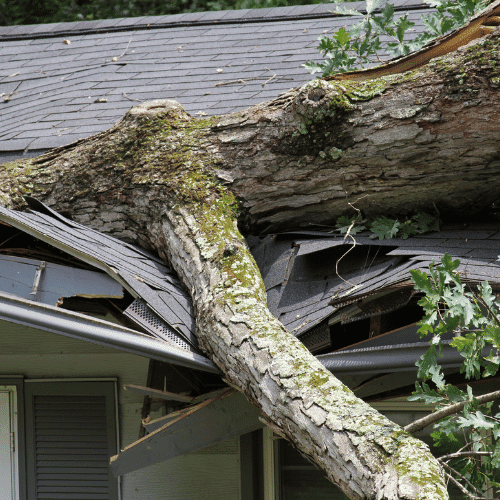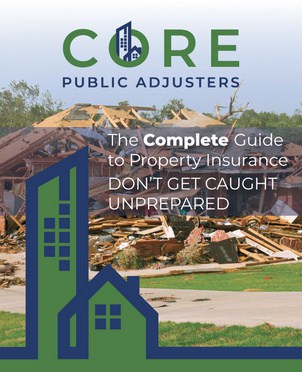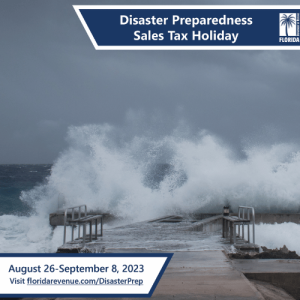It can be devastating to see your beloved home ripped apart by winds and water. Floridians are no strangers to the weather catastrophes that sweep through the state every year. Equally devastating is property damage that stems from vandalism, burglary, accidental water leaks or explosions. Thankfully, homeowner’s insurance can cover you if you experience any of these perils. The challenge is getting your insurer to pay out the maximum that your policy allows. Most homeowners turn to public adjusters for help, and there is a good reason why.
The process between filing a claim and receiving your payout can take a long time. Insurance policy rules allow the policyholder to file a claim up to three years depending on the type of claim.[1]
With the help of a public adjuster, you can have a better time navigating through the Floridian homeowner’s insurance landscape.
Now let’s take a look at how long a normal insurance claim takes to be approved in Florida.
How long does it take?
Several factors determine how long it will take your insurer to settle your claim.[2] These include:
- The scale of the loss or damage
- The time it takes to get an adjuster out to you
- The time it takes for you and your insurer to agree on the payout amount
- Any state or federal laws that govern insurance claims
In Florida, the following timelines apply:
Insurer must acknowledge your claim within 14 days.
The state of Florida requires your insurer to respond to your claim enquiry within fourteen calendar days unless factors beyond their control prevent it.[3] The response has to be an acknowledgement of your claim and a file for your case will be opened.
Your insurance company must give you information concerning your case. This information includes the documentation or evidence you need to submit, as well as instructions on how to fill out your claims form.
After receiving your claim and communicating with you, your insurer will begin investigating the claim. You may need to submit a proof of loss, if they require it.
The proof of loss may include:
- Before and after photographs documenting the extent of loss or damage
- Receipts of expenses you’ve incurred after the damage has occurred, for example hotel bills, home rental or car rental expenses
- Estimated cost of repairing the damage or replacing the loss
Investigation of the claim is a process that involves several people. The insurer will:
- Collect all the relevant documentation and begin reviewing them
- Take statements and conduct interviews (where necessary)
- Employ their own adjuster working on behalf of the insurance company to examine and survey the area
- Obtain any other necessary information
The insurance company conducts this investigation, in part, to assess whether the claim is real or fraudulent. According to the Coalition Against Insurance Fraud, illegitimate insurance claims costs the industry an estimated $80 billion every year. This affects everyone because insurers increase premiums to make up for the loss.
Insurer should pay out the claim within 90 days.
Your insurer has ninety calendar days to pay out your claim once it is established that it is legitimate. If you still have an active mortgage, the insurer can pay out to both you and your lender who will then issue the payment to you. According to the Florida Department of Financial Services, “Within 90 days, you should receive full settlement of your claim, payment of the undisputed portion of your claim, or a denial of your claim.”[4]
What should a property owner do if the insurance company is taking too long?
A study done by NAIC in 2021 revealed that delays accounted for over 18% of complaints by policyholders.[5] No system is perfect and delays are part of life, but when the insurance company treats you unfairly, it’s time to take a stand (see the top 10 ways insurance company may treat you unfairly). If your insurance company is taking too long to process your claim or to pay you out, there are a few things that you can do to help speed up the process.
- Document everything. It will serve you well to have everything on record. Record your telephone conversations, follow up with emails, ensure that you know who you talked to, what you discussed and when you talked to them. This will go a long way in helping you fight unreasonable delays. Also keep a record of everything in your home. Have well documented evidence in the form of pictures, videos and receipts of the things in your home.
- Be persistent. Sometimes you just need to bear down and keep trying. There are a lot of factors that could be delaying your insurer and some of them might be legitimate. Try to follow-up as frequently as you can and keep engaging your insurer.
- Hire a public adjuster. Persistence is key. However, if you don’t have the time or expertise to keep following up, or if you don’t know what to say when you do, then it’s time call Core Public Adjusters.
How can Core Public Adjusters help if the insurance company is taking too long? A public adjuster is a trained professional who has knowledge of the industry and can help you figure out why your claim is taking too long. Core Public Adjusters knows the ins-and-outs of the insurance world. Our expert team will manage the stress of engaging your insurer and keep your claim moving forward. Contact us to get started.
References
[1] Retrieved from The Florida Legislature http://www.leg.state.fl.us/statutes/index.cfm?App_mode=Display_Statute&Search_String=&URL=0600-0699/0627/Sections/0627.70132.html
[2] Retrieved from Consumer Financial Protection Bureau https://www.consumerfinance.gov/ask-cfpb/what-should-i-consider-when-dealing-with-an-insurance-adjuster-en-1523/
[3] Retrieved from Florida Department of Financial Services https://www.myfloridacfo.com/division/consumers/understandingcoverage/guides/documents/HOABillRights.pdf
[4] Retrieved from Florida Department of Financial Services https://www.myfloridacfo.com/division/consumers/understandingcoverage/guides/documents/HOABillRights.pdf
[5] Retrieved from National Association of Insurance Commissioners https://content.naic.org/cis_agg_reason.htm







